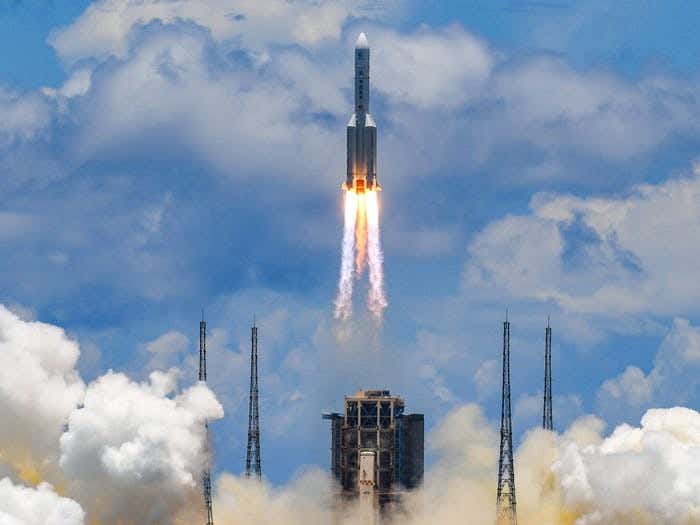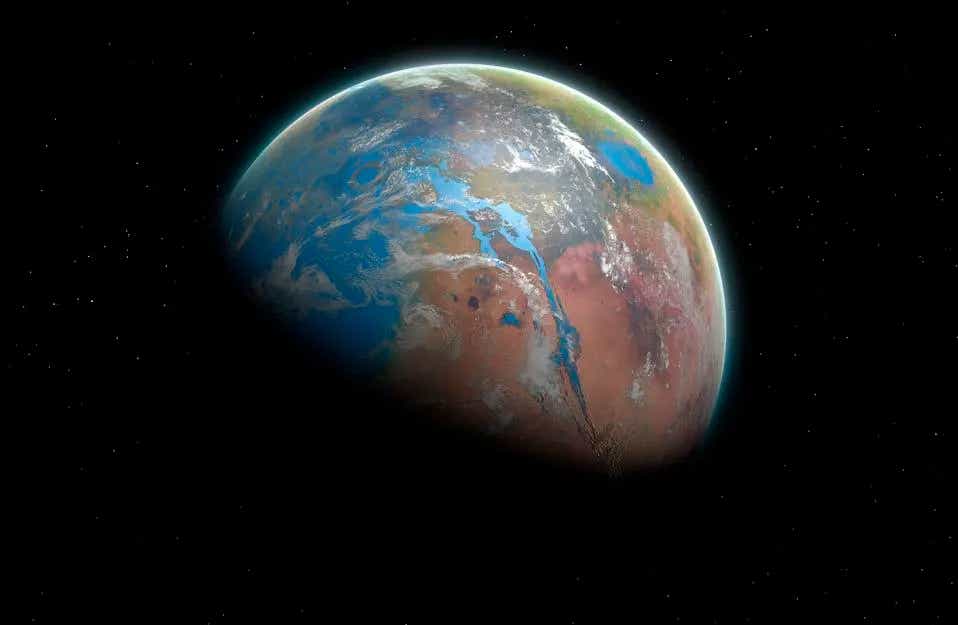China plans to attempt an ambitious landing on Mars in the coming days
China’s “Zhurong” rover, part of its ambitious space programme to send a probe to Mars, is set to attempt a landing on the Red Planet

[May 13, 2021: Josh Shavit]
China's "Zhurong" rover, part of its ambitious space programme to send a probe to Mars, is set to attempt the challenging landing on the Red Planet in the next five days, Beijing's space agency said Friday.
The tricky touchdown, if successful, would come a few months behind America's latest probe to Mars, as Beijing presses ahead with its increasingly bold space ambitions.
Any landing attempt would occur early in the morning Beijing time, the CNSA said. That would be evening on the US East Coast. Twitter accounts that monitor China's space programs reported that a Friday landing would happen at 7:11 p.m. ET.
Landing is "the most challenging part of the mission," the CNSA previously said. If the Tianwen-1 lander safely touches down on Martian soil, it would be the first non-NASA Mars landing since the Soviet Union's rover touched down in 1971. Success would make China the third nation to land on Mars.
The launch of the Tianwen-1 Mars probe last July marked a major milestone in China's space programme, which Beijing views as a sign of its rising global stature and technological might.
The spacecraft, which entered Mars' orbit in February, has now reached "crucial touchdown stage", the state-run tabloid Global Times said Friday. It will land in a vast northern lava plain known as the Utopia Planitia.
Speculation about a Saturday landing has been rife on social media after a top spaceflight expert estimated the rover -- named after a mythological Chinese fire god -- would reach the surface in the morning Beijing time.
The complicated landing process has been called the "seven minutes of terror" because it happens faster than radio signals can reach Earth from Mars, meaning communications are limited.
Several US, Russian and European attempts to land rovers on Mars have failed in the past, most recently in 2016 with the crash-landing of the Schiaparelli joint Russian-European spacecraft.
The latest successful arrival came in February, when US space agency NASA landed its rover Perseverance, which has since been exploring the planet.
The US rover launched a small robotic helicopter on Mars which was the first ever powered flight on another planet.
Six-wheeled, solar-powered and roughly 240 kilograms, the Chinese rover will collect and analyse rock samples from Mars' surface.
It is expected to spend around three months there.
If successful, China will be the world's first country to carry out an orbiting, landing and roving operation during its first mission to Mars.
It will become just the third nation to safely touch down on the Red Planet after Russia and the United States.
The country has come a long way in its race to catch up with the United States and Russia, whose astronauts and cosmonauts have decades of experience in space exploration.
China successfully launched the first module of its new space station last month with hopes of having it crewed by 2022 and eventually sending humans to the Moon.
Last week a segment of the Chinese Long March 5B rocket disintegrated over the Indian Ocean in an uncontrolled landing back to Earth.
That drew criticism from the United States and other nations for a breach of etiquette governing the return of space debris to earth, with officials saying the remnants had the potential to endanger life and property.
Like these kind of feel good stories? Get the Brighter Side of News' newsletter.
Tags: #Global_Good_News, #Space, #Mars, #The_Brighter_Side_of_News
Joseph Shavit
Head Science News Writer | Communicating Innovation & Discovery
Based in Los Angeles, Joseph Shavit is an accomplished science journalist, head science news writer and co-founder at The Brighter Side of News, where he translates cutting-edge discoveries into compelling stories for a broad audience. With a strong background spanning science, business, product management, media leadership, and entrepreneurship, Joseph brings a unique perspective to science communication. His expertise allows him to uncover the intersection of technological advancements and market potential, shedding light on how groundbreaking research evolves into transformative products and industries.



